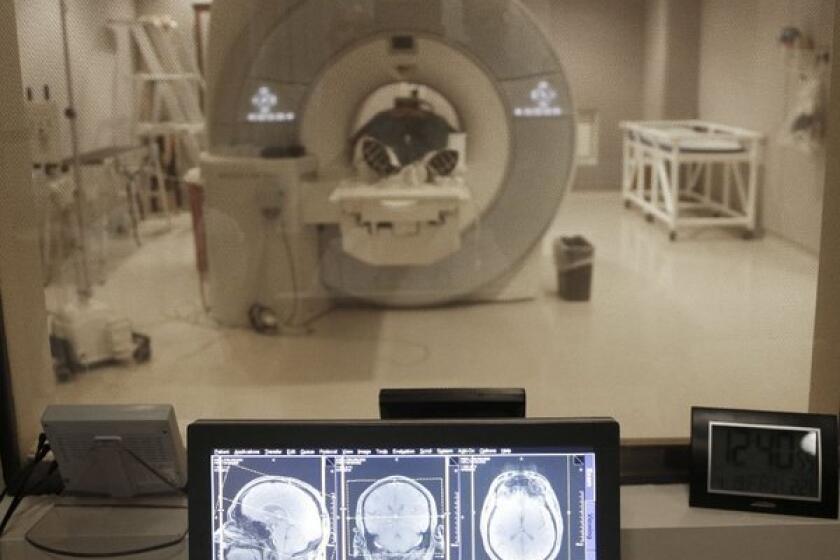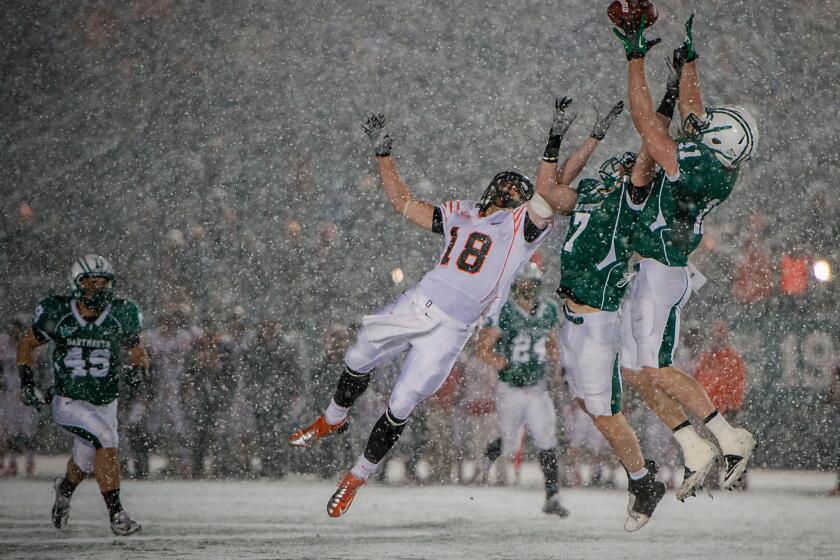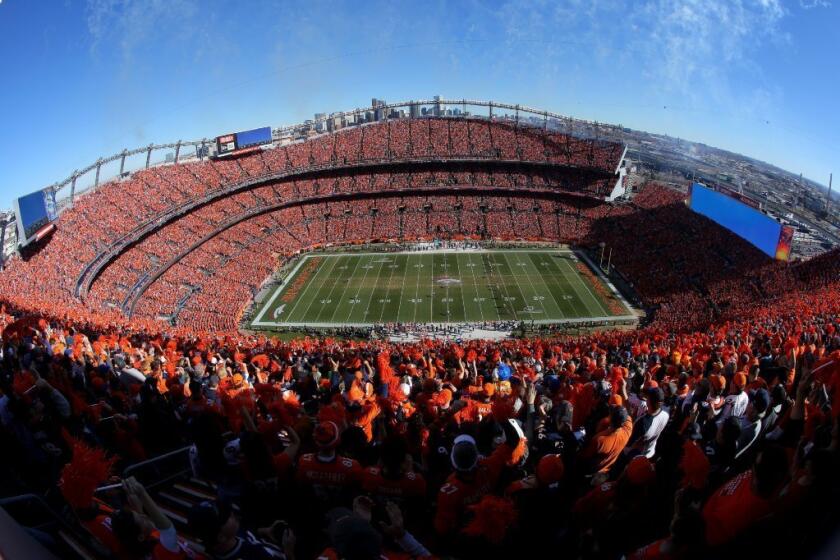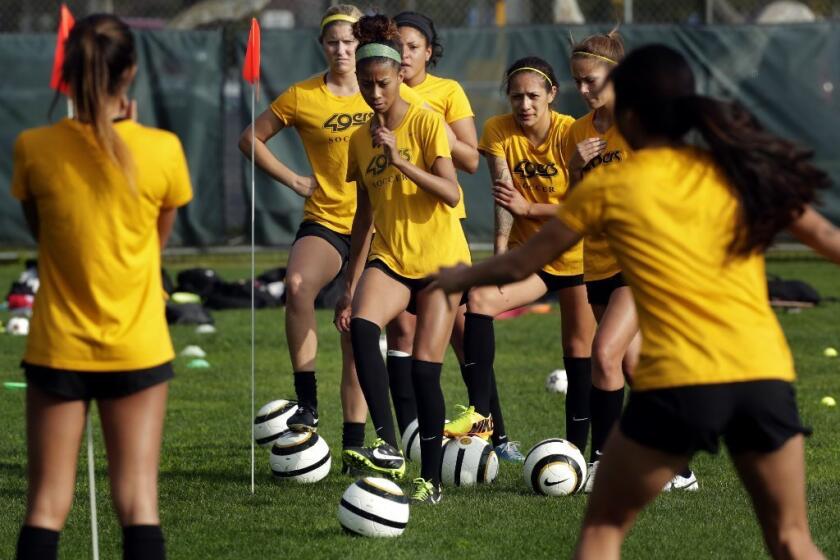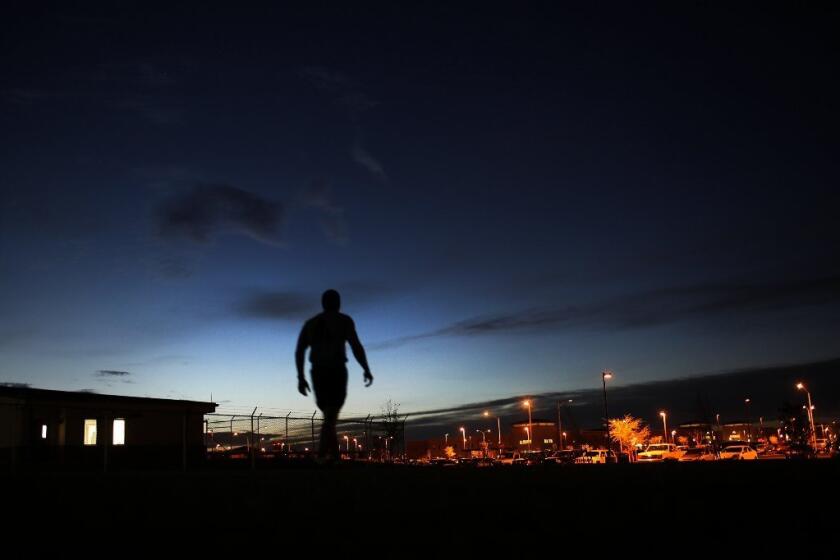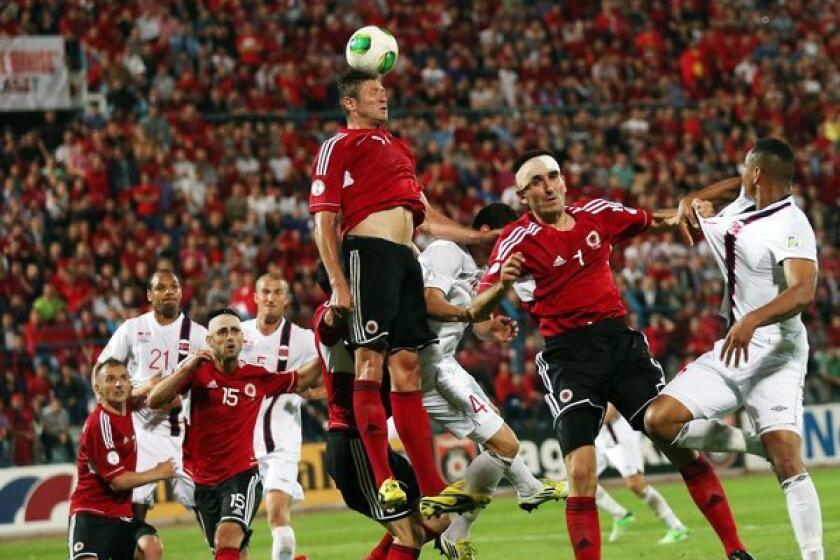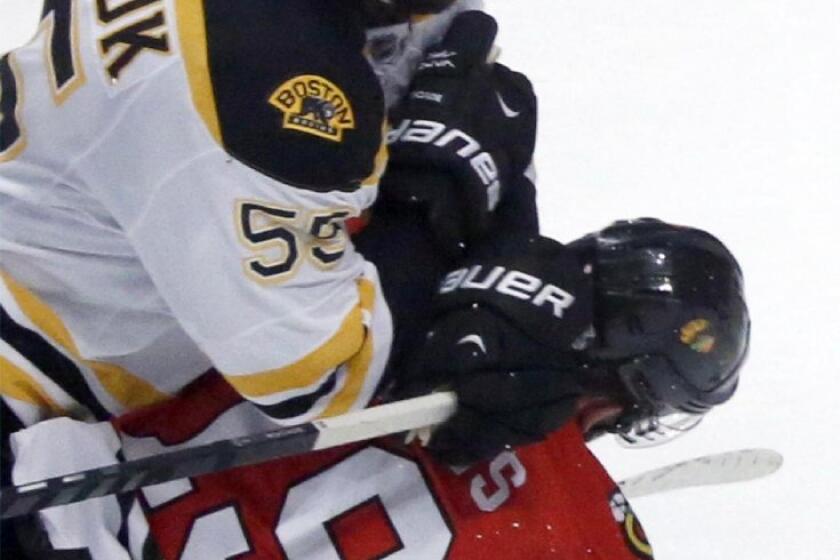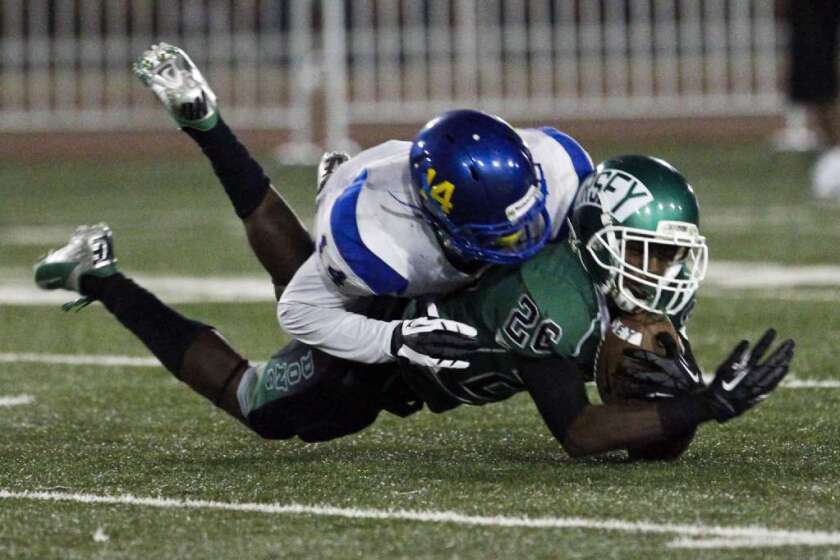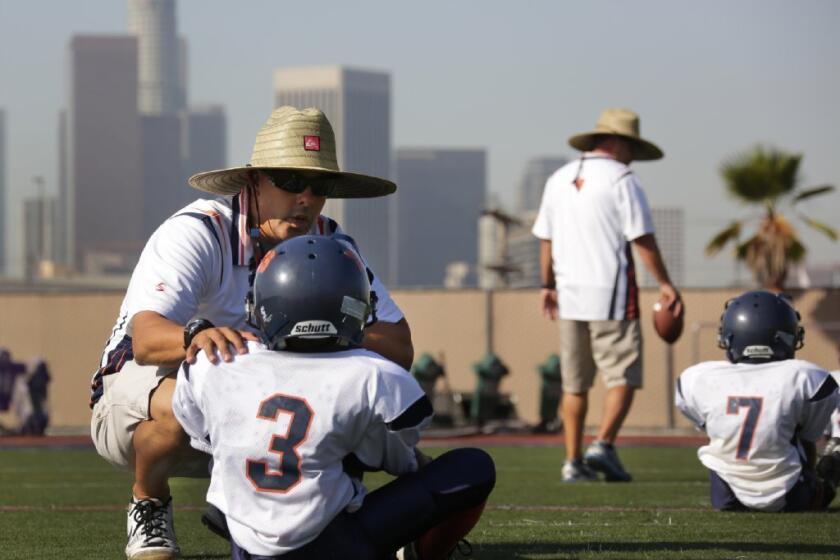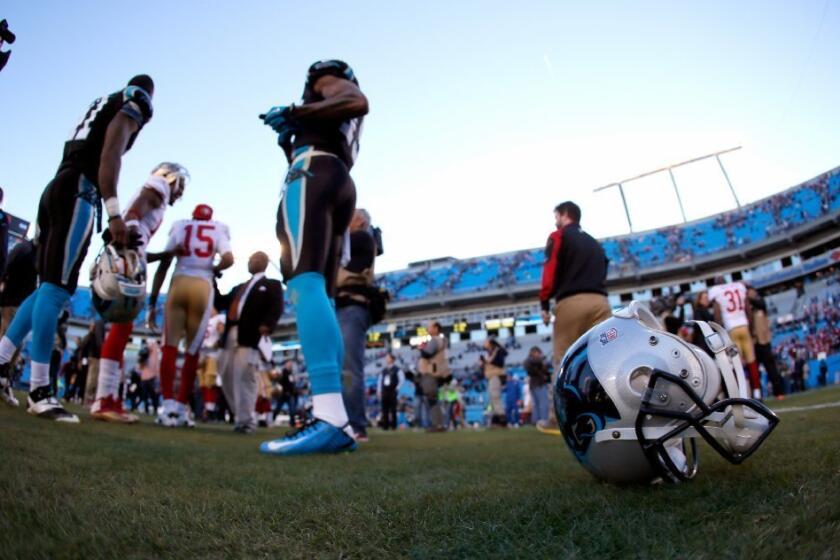Full coverage: Concussions
- 1
New research has found that a protein indicating the breakdown of white matter in the brain can be detected following a hard blow to the head, raising hopes that a blood test could soon detect a concussion, predict how long symptoms will linger, and guide decisions about an athlete’s return to play.
- 2
Watching the brains of former football players at work on a demanding mental task, researchers believe they have identified an early warning sign of concussions’ cumulative toll, and the cognitive trouble it may portend.
- 3
New research from Canada has found that roughly 1 in 5 adolescents has probably suffered a traumatic brain injury--a figure that suggests severe concussion among children and adolescents may be far more common than has been estimated.
- 4
For college athletes who get through their sport’s season concussion-free, new research suggests it may be too early to breathe a sigh of relief.
- 5
The extra brainpower that comes with having spent more years in a classroom is a powerful aid to recovery following a moderate to severe brain trauma, a new study finds.
- 6
Here’s one solution to the National Football League’s concussion problem: Stop playing at sea level.
- 7
Elderly people who have both mild cognitive impairment and a history of serious concussion showed higher amounts of the protein deposits associated with Alzheimer’s disease, according to a new study.
- 8
Bucking the emerging belief that females are more vulnerable to concussion, a new study finds that irrespective of the severity of initial concussive symptoms, girls and women who’ve suffered mild traumatic brain injury recover faster than do boys and men.
- 9
Super Bowl viewers might want to keep an eye on the helmets crashing together in Sunday’s game between the Seattle Seahawks and Denver Broncos.
- 10
Thursday’s $765-million settlement between the National Football League and 4,500 retired NFL players underscores two key facts about traumatic brain injury: that it is difficult to prove and measure -- especially many years after the fact -- and that its link to neurocognitive problems that appear years later remains an enigma.
- 11
After Krista Rickards’ daughter Sarah suffered a severe concussion on a high school volleyball court in September 2010, the teenager returned to school in a matter of days.
- 12
The problem with diagnosing concussion, or mild traumatic brain injury, is that, well, you can seldom do it with any certainty.
- 13
Research to prevent and better treat brain injury is incomplete, the Institute of Medicine says. Reluctance to report trauma endangers young athletes, it says.
- 14
The U.S. military has faced two epidemics over the last decade of war in Afghanistan and Iraq.
- 15
Heading the ball is a key soccer skill, but a new study finds that players who headed the ball frequently were more likely to suffer brain injury and damage their memory than their fellow players who were a little less headstrong, so to speak.
- 16
On football fields across the country, the sweating, grunting and hitting of pre-season practice is in full swing, and the nation’s athletic trainers are warning that there’s still too much head-to-head contact in the game -- and with it, potentially catastrophic danger to the head, neck and spine.
- 17
Fighting and body-checking are as integral to ice hockey as skates and pucks, but at what cost?
- 18
Could a spring-loaded fly swatter save NFL football players and Iraq war veterans from the effects of concussions and traumatic brain injuries?
- 19
Health experts have some bad news for high school football players: There is no particular type or brand of helmet or mouth guard that will keep you relatively safe from a concussion.
- 20
A screening test for concussion that can be performed quickly on the sidelines was able to detect mild traumatic brain injury in about 4 in 5 college athletes who had sustained a concussion, a forthcoming study has found.
- 21
Here’s a novel idea, given that American parents send almost 4 million of their children out to play tackle football every year, despite mounting concerns about youth concussions: Maybe the helmets their kids wear should be tested and ranked on how well they prevent concussion.
